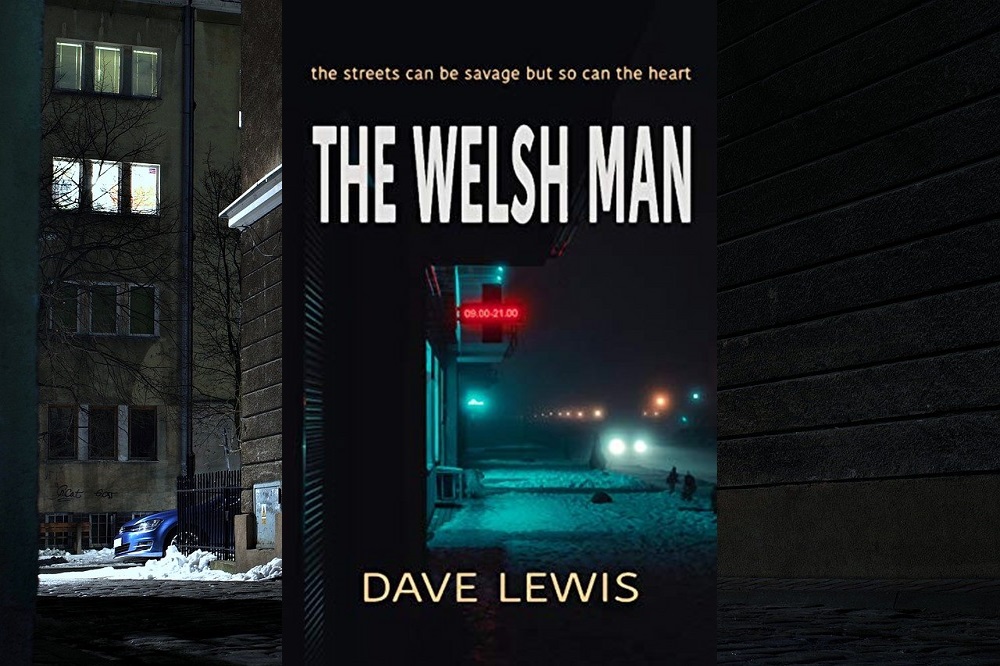Review: The Welsh Man is a hard-hitting novel which takes the pulse of 80s Wales and 90s London

Jon Gower
Paul Thorne finds himself in trouble and then keeps on finding trouble. A man handy with fists – backed up by a physique that he can pass off as that of a Royal Marine – one of his first fights is when he stands up to his mother-beating father, who promptly scuttles out of his life. The next one puts his opponent in hospital and Paul in prison. When he finally gets out he returns to his home in the south Wales valleys, where he finds that things haven’t exactly improved:
Retracing my steps, back downhill to the village I noticed the thick grime on the windows, the boarded up shops and the plum-coloured noses of old men that I pass. People had a ghost-like appearance, pale as the rain.
The young man doesn’t stay around, heading for the bright lights and building sites of Cardiff, where snazzy new clubs and bars were springing up. Here, working as a bouncer, he meets Charley, a beautiful woman who will chart the course of his life for him, and turn that course into a crazy, lurching slalom ride. Their hyper-passionate relationship ends as abruptly as can be when Charley leaves without warning or leaving so much as a goodbye note. Paul takes to daytime drinking of strong lager and listening to the Doors and the Velvet Underground and at night takes out his pain on obstreperous punters until he finally feels the pull of a bigger city and heads off to London.
Here he finds himself in the orbit of Patrick, an ice-hearted criminal whose small empire is on the up and up and ends up working with Michael, a man very well informed about skullduggery on the streets. When they’re not working in the clubs Michael charts the recent history of criminality in “The Smoke,” from the safe-cracking of the fifties, through the wages’ runs of the sixties before the brief era of bank robberies. When the banks became more secure attention turned to security vans before drugs became a source of ready cash and new criminals came to vie with the old, hard families.
Life changes completely for Paul when he is put on chaperone duties for Patrick’s wife who turns out to be the long-lost Charley, now mother of Morgan, a child Paul happily befriends. Forced to conceal their past, the two former lovers spend more and more time together even as Patrick breaks one of the cardinal rules of major drug dealing, namely don’t use your own product.
Then a terrible day dawns when Patrick breaks another rule and mixes family with business. As a consequence Charley loses her life and the deranged, coke-befuddled Patrick pins the blame on ‘the Welsh man’ who skedaddles out of there, leading to a passage in Paul’s life when he keeps on travelling, place to place to place, trailed by his own paranoia caused by being a marked man.
Porthcawl
He finally finds sanctuary in the faded glory and among the Elvis Presley impersonators of Porthcawl where Paul befriends a young heroin addict, helping her to get clean. But there he learns the harsh lesson in the words emblazoned across the book’s cover – ‘the streets can be savage but so can the heart.’ I won’t spoil the ending other than to say that there are a few of them and one involves a hapless assassin called Seamus.
You’ll have worked out that this is a hard-hitting, hard-boiled novel as befits a central character who doesn’t step back from a fight. It takes the pulse of 80s Wales and 90s London, finding the former to be faltering and the latter to be racing quickly in the clubs of Soho and the drinking clinics of the city’s suburbs. It’s a story that fair races along, careering from one violent event to another and as it does so it palps the seedy underbelly of the English capital, even as it shows that love, too, has its place among the sudden flash of knives.
You can buy The Welshman here.
Support our Nation today
For the price of a cup of coffee a month you can help us create an independent, not-for-profit, national news service for the people of Wales, by the people of Wales.






